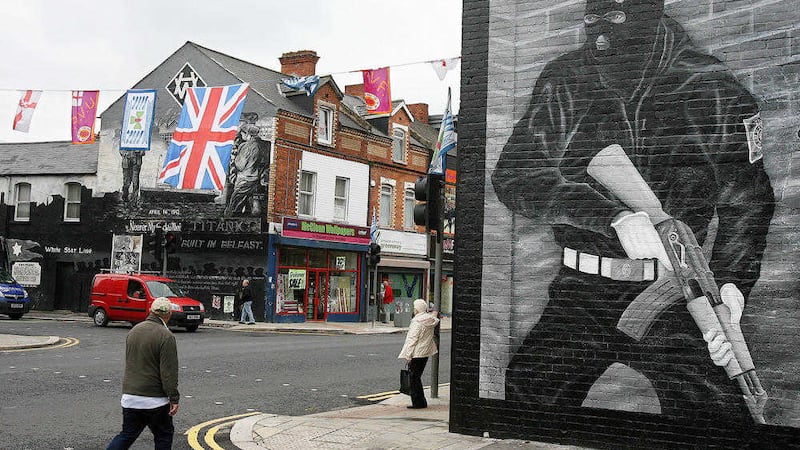A FRIEND was recently recalling the once sorry state of Newry's eponymous river, where among the floating litter items such as shopping trolleys, traffic cones, rusting bikes and even the "bloated carcasses of pets" had been discarded into what was then a town centre waterway.
Yet his ire was directed not at the delinquents who'd thrown the assorted objects into the river or the dog owners incapable of giving their pet a dignified send-off, but at the now-defunct Newry and Mourne District Council.
The outburst prompted me to mount an uncharacteristic defence of the council, arguing that a local authority couldn't be held responsible for its citizen's anti-social behaviour and that, moreover, councils have quite limited resources and a remit that was unlikely to have ever extended to river cleansing.
I've some sympathy for my friend's misplaced burden of responsibility because councils themselves tend to encourage this kind of misapprehension. Despite the aforementioned finite resources and limited remit, they exaggerate their reach, portraying themselves as ‘all singing, all dancing’ organisations that are involved in delivering everything from healthcare provision to economic development, even though there are central government departments and agencies specifically designed and funded to fulfil these very roles.
The argument may be that councils have a greater local focus and are more responsive to people's immediate needs but equally they lack real expertise, economies of scale, and accountability.
It's seven years since the number of councils in the north was reduced from 26 to 11, an entirely reasonable development that sought to rationalise the delivery of local government across a region with a population of less than two million. Billed as 'the biggest shake-up in local government for a generation', one of the key arguments for reducing the number of councils was to cut costs, with a report at the time from business advisers PwC forecasting savings of up to £438m over 25 years.
To date, there's little evidence that the reforms have been successful in this regard, while the level of debt shared by the region's 11 councils has soared to more than £0.5bn and their collective pension liability has grown to an equally eye-watering figure. It emerged last week that no fewer than 45 council officials in the north are paid salaries in excess of £100,000.
It's widely acknowledged that the devolution of planning powers has been an abject failure too. The regional civil service is often criticised for its lack of ambition but arguably there are few things more ambitious than thinking part-time elected representatives, with no relevant skills set, could deliver a fair and efficient planning system. Meanwhile, ratepayers have seen what were modest services to begin with cut further. The once ubiquitous street cleaner is now as rare as the corncrake, while council-run facilities are being privatised or closed down.
In my home town of Downpatrick, it has been proposed to downgrade the Newry, Mourne & Down Council-run county museum, in a move that has seen officials blindside the very councillors to whom they are supposed to be answerable. The restructuring of the award-winning facility has caused justifiable outrage in the county town, which beyond its rich early Christian heritage has few economic drivers. It is claimed that the professional posts essential for the museum to function – collection, conservation, research, exhibition and community participation – are to be lost through a policy that has barely been discussed by councillors.
This cost-saving exercise is being carried out while the same council plans to build itself new headquarters – a decade after Down District Council spent £11 million on new offices in Downpatrick. Newry, Mourne & Down Council pitches what many regard as a vanity project among a series of other proposals it hopes to undertake through the Belfast Regional City Deal. However, funding for the new headquarters is excluded from the pot provided by Stormont and Whitehall, meaning that its cost, which has doubled to more than £14m in just three years, must be burdened by ratepayers alone. It is little wonder this project ranked poorly when the council conducted a public consultation exercise last year.
This episode is an illustration of how our councils are steadily and stealthily transforming into something closer to the 'enabling authority' model that operates in England, where frontline services are increasingly outsourced and power rests in the hands of localised technocrats rather than elected representatives. Political outcry at this process has been muted, partly because many councillors are oblivious to it, while others appear happy to indulge it.
There are two potential outcomes from this trend – either the politicians themselves seek to reverse it by reinstating their authority, or they prepare for proper reform that'll make most of them redundant.









